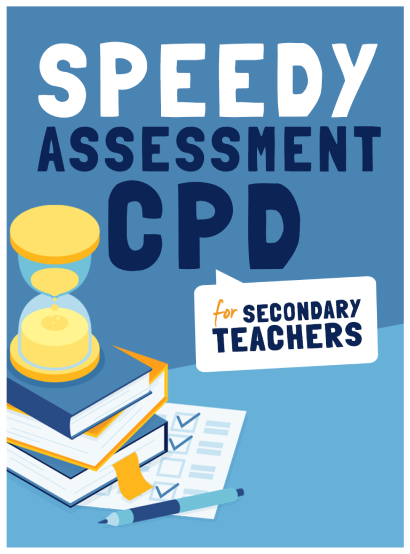GCSE grades – Why it’s time for schools to abandon this pointless bureaucracy

The impact of the pandemic on this year’s exams should prompt educators everywhere to take a clear-eyed look at grading in schools – why we do it, whom it helps and the numerous problems it can cause…

- by David Didau
- Writer, speaker & senior lead practitioner for English at OAT Visit website

Grades are so much a part of the educational landscape that it’s hard to imagine what schools would be like without them. In the debate over whether or not we should retain exams this year, little thought has been given as to whether we should retain 1-9 GCSE grades.
We know that grades can have a toxic and distorting effect on behaviour, which is precisely why Ofsted (and most schools) stopped grading teachers. Yet we still appear to think that grading students is a good idea.
The inescapable, grinding focus of raising students’ ranks has had a warping effect on the school curriculum. We don’t just teach the syllabus – we drill students in test performance in order to ensure they get the best possible results.
Inevitably, this means there’s far less time to think about meaning, less time to develop taste and judgement, and less time to explore and digress. In fact, there’s less time to do all those things that probably drove you to become a teacher in the first place.
Who benefits?
Whatever you think education is for, there’s scant evidence that grades are likely to help. If we believe the purpose of education is to make children happier, healthier, safer, more creative, better critical thinkers and so on, it’s not obvious how grading students helps us in these aims.
When we consider the effort we put into feeding the grading machine, it seems clear that the actual purpose of education is to sort students into distinct groups – those capable of going to university and entering high-status careers, and those who aren’t.
Essentially, grading only benefits someone else. GCSE grades help post-16 providers sort students into academic or vocational pathways. A Level grades are useful for universities, and university classifications are in turn considered useful by employers.
Why should it be the job of schools to make it easier for universities to recruit those students they’d rather have at their institution? If universities want to know who’d be most suitable for their courses, can’t they organise their own grading system?
For that matter, why should it be universities’ responsibility to provide gradings for employers? If employers need grades to help them decide whom to employ, shouldn’t they organise grading systems of their own?
Perverse incentives
Beyond that, are there any other upsides to grading students? Well, grades are popular with (some) parents, and make it (superficially) easier to hold schools and teachers to account – but high stakes accountability systems inevitably produce perverse incentives, making it increasingly hard for everyone in the system to have scruples.
If we’re being honest, there’s huge pressure to scour examination reports for hints and tricks, pay examiners to provide training and replace broad curriculums with ones focussed on maximising test performance. I don’t think anyone – teachers, students or parents – really wants this.
If grades produce so many net negatives, then we need a better justification for retaining them than the fear that schools and teachers are so untrustworthy that there’s no other option. If we really are that untrustworthy, it’s probably sensible to look at the systemic pressures that might be driving this.
Getting rid of grades certainly doesn’t mean getting rid of assessment. Assessment is the life-breath of teaching; without it, teachers and students are left to fumble entirely in the dark.
We could perhaps mitigate the negative effects of grades on meaningful assessment by introducing driving test-style pass/fail certifications in different subjects, which students would be allowed to retake as many times as necessary. This could be used to demonstrate a basic level of competence, which would signal to employers that an important threshold had been passed.
We could also introduce a system like the one used in music grades, where students study for, and take examinations in higher levels as and when they’re ready to. If we really want to grade, let’s at least not make it an all-or-nothing, one-shot attempt.
David Didau is senior lead practitioner for English at Ormiston Academies Trust; his new book, Making Meaning in English, is available now, published by Routledge










